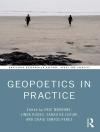In his unconventional verse, Walt Whitman spoke in a powerful, sensual, oratorical, and inspiring voice. His most famous work, Leaves of Grass, was a long-term project that the poet compared to the building of a cathedral or the slow growth of a tree. During his lifetime, from 1819 to 1892, it went through nine editions. Today it is regarded as a landmark of American literature.
This volume contains 24 poems from Leaves of Grass, offering a generous sampling of Whitman’s best and most representative verses. Featured works include ‚I Hear America Singing, ‚ ‚I Sing the Body Electric, ‚ ‚Song of the Open Road, ‚ ‚Out of Cradle Endlessly Rocking, ‚ ‚When Lilacs Last in the Dooryard Bloom’d, ‚ and ‚O Captain! My Captain!’—all reprinted from an authoritative text.
Inhaltsverzeichnis
‚FROM THE SECTION ‚Inscriptions‘
I Hear America Singing
Starting from Paumanok
‚FROM THE SECTION ‚Children of Adam‘
I Sing the Body Electric
Once I Pass’d through a Populous City
‚FROM THE SECTION ‚Calamus‘
Recorders Ages Hence
I Hear It Was Charged against Me
Salut au Monde!
Song of the Open Road
Crossing Brooklyn Ferry
Song of the Broad-Axe
Song of the Redwood-Tree
A Song for Occupations
A Song of the Rolling Earth
‚FROM THE SECTION ‚Birds of Passage‘
Pioneers! O Pioneers!
‚FROM THE SECTION ‚ Sea-Drift‘
Out of the Cradle Endlessly Rocking
‚FROM THE SECTION ‚Drum-Taps‘
Beat! Beat! Drums!
The Wound-Dresser
‚FROM THE SECTION ‚Memories of President Lincoln‘
When Lilacs Last in the Dooryard Bloom’d
O Captain! My Captain!
By Blue Ontario’s Shore
Passage to India
Prayer of Columbus
‚FROM THE SECTION ‚Whispers of Heavenly Death‘
A Noiseless Patient Spider
‚FROM THE SECTION ‚Songs of Parting‘
So Long!
Über den Autor
One of America’s most influential and innovative poets, Walt Whitman (1819–92) worked as a teacher, journalist, and volunteer nurse during the Civil War. Proclaimed as the nation’s first ‚poet of democracy, ‚ Whitman reached out to common readers and opposed censorship with his overt celebrations of sexuality












